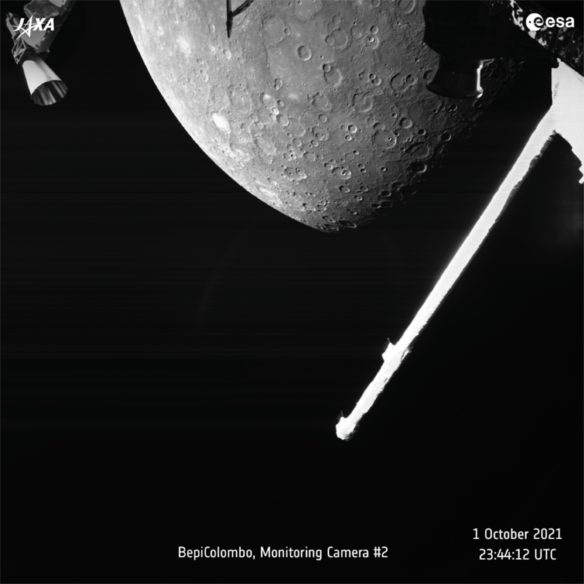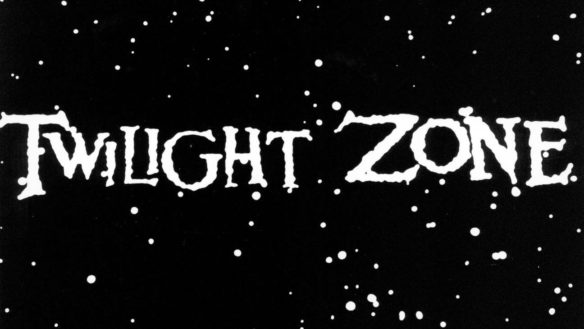(1) GALAXY QUEST FUNKOS. Slashfilm rejoices: “Cool Stuff: By Grabthar’s Hammer, Galaxy Quest Funko POPs Have Arrived!”

… Funko has revealed three new POP vinyl figures of Jason Nesmith (Tim Allen) as Commander Peter Quincy Taggart, Sir Alexander (Alan Rickman) as Dr. Lazarus, and Fred Kwan (Tony Shalhoub) as Tech Sergeant Chen. They’re all given the classic look from the original “Galaxy Quest” TV series, though they’re not intended to be the classic versions of their characters. If they were, Tim Allen’s hair mold would probably look more retro. However, they did depict Fred Kwan with that semi-squinted expression in his eyes, which only really happened when he was fully in character on the show. Personally, I’d like to have a series of “Galaxy Quest” Funko POPs with them looking disheveled, such as Sir Alexander with hair poking out of his torn alien headpiece.
What’s a little disappointing is the lack of the rest of the original crew, with no figures for Gwen DiMarco (Sigourney Weaver) as Lt. Tawny Madison and Tommy Webber (Daryl Mitchell) as Laredo in sight. Seems like quite an oversight to exclude both the woman and the Black cast members from the movie/series, especially since the packaging for the other figures indicates that there are two other “Galaxy Quest” Funko POPs on the way…

(2) AFTER ACTION REPORT PART II. {By Steven French.] [Part I was in a previous Scroll.] It wouldn’t be a fantasy exhibition in Leeds without *some* mention of JRR! Leeds Central Library’s Fantasy: Realms of Imagination included a couple of displays with Tolkien-related material including one with a photo of his and Edith’s house in West Park, out on the edge of the city, as well as two of his poems that were published in the university student magazine The Gryphon. One, ‘Iumonna Gold Galdre Bewunden’ not only features a dragon on its hoard but also makes mention of a ring (!). The other, ‘Light as Leaf on Lindentree’ , from 1925, eventually became the Song of Beren and Lúthien which Strider recited to the hobbits on Weathertop.
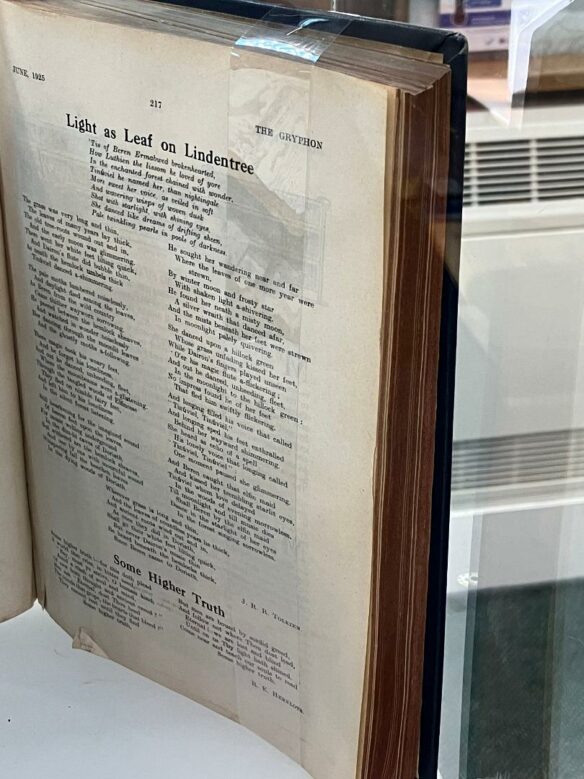
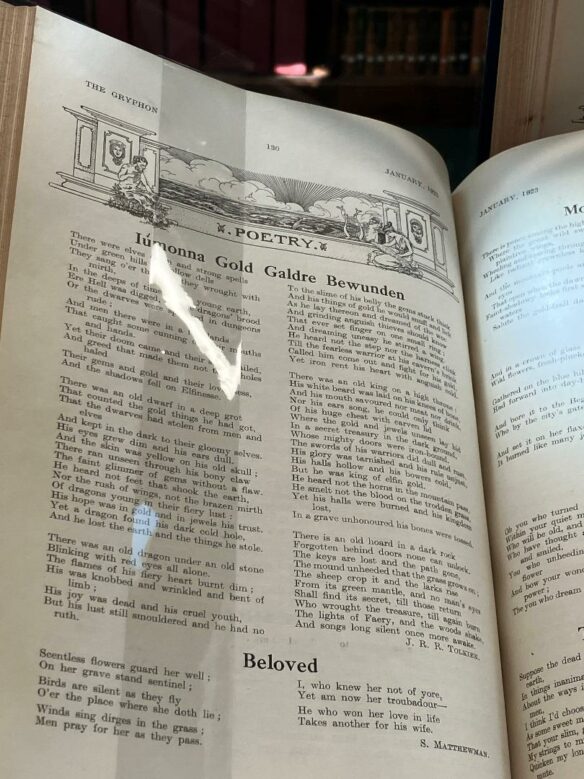
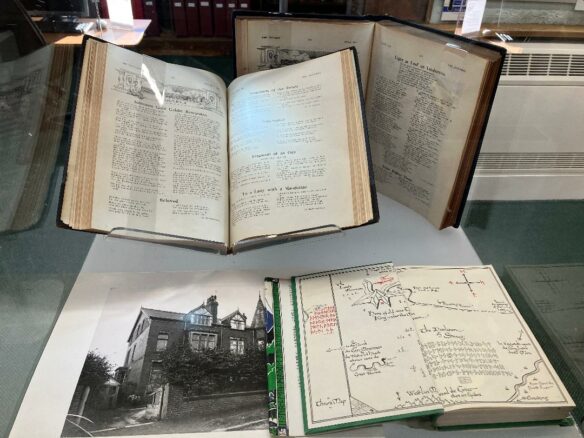
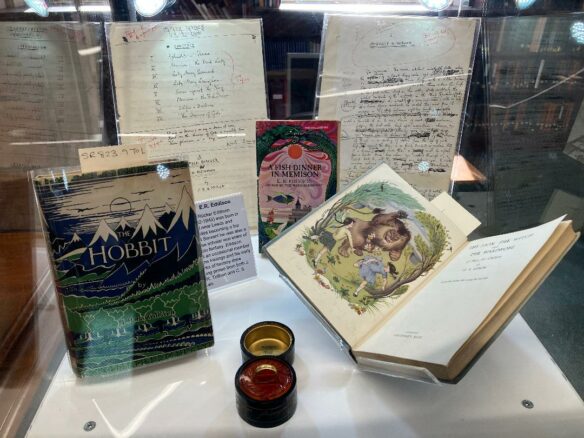
(3) AFTER ACTION REPORT PART III. [By Steven French.] And finally (honest!), no fantasy exhibition would be complete without a dragon or two and Fantasy: Realms of Imagination at Leeds Central Library had its fair share, including this fine example:

Plus an egg or two:

But my favourite was this little fellow, made by the Bermantofts Pottery of east Leeds:
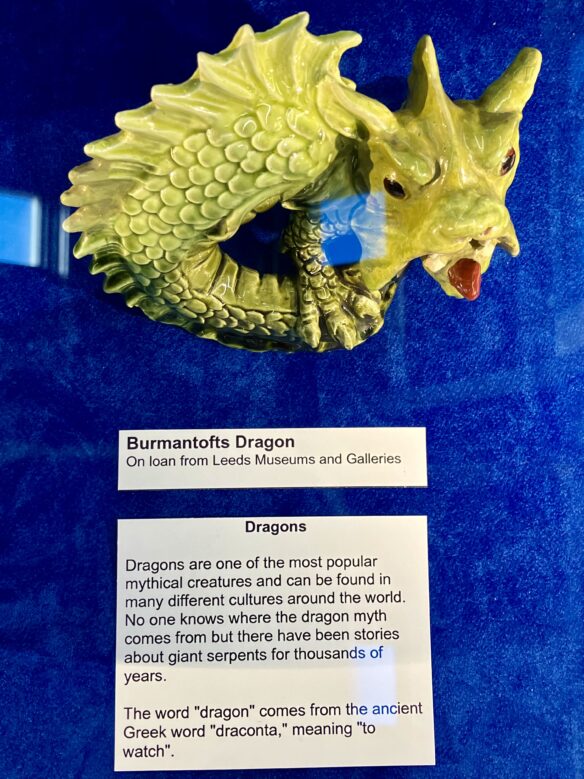
(Bermantofts Pottery also made the ox-blood faïence (glazed terracotta tiles) for the facades of such London Underground stations as Covent Garden and Russell Square)
Even the reading room, with its magnificent ceiling, took part in the spot-the-dragon competition (can you see it?!):

Fun for kids of all ages!
(4) ABOUT THOSE SMOFCON VIDEOS. Ersatz Culture advanced this “Modest Proposal” about the Chengdu panels at SMOFcon:
He’s also posted this at Mastodon, where Cheryl Morgan gave a response that can be read at the link.
(5) TIANWEN. The “Tianwen” project was announced in Chengdu last October with the cooperation of representatives of several professional writers groups and Hugo Award Administrator Dave McCarty. This puff piece encompasses what we know so far: “Tianwen: Unveiling China’s Diverse Science Fiction to the World” at News Directory 3. While the publicity seeks to associate a new literature prize with the Hugo brand, it does not appear to claim a formal connection to the WSFS award.
The announcement and unveiling of the “Tianwen” project at the first Industrial Development Summit of the World Science Fiction Conference is set to revolutionize the Chinese science fiction scene. This global project, launched by the Chinese Authors Association and the Organizing Committee of the World Science Fiction Conference, aims to discover new talents, support science fiction works, and promote the integrated development of the industry.
The project was unveiled by Alai, Vice Chairman of the Chinese Writers Association, Hiroshi Osawa, Chairman of the Japan Science Fiction Writers Association, and Dave McCarty, head of the Hugo Award Selection Committee. Alai expressed his hope that “Qu Yuan’s romanticism and idealism will be better publicized in ‘Tianwen’”, while Osawa emphasized the impact of the project on shaping the future generation.
The “Tianwen” plan includes the establishment of the Tianwen Global Science Fiction Literature Prize, which will be awarded annually from 2024. This prize aims to encourage new and young writers, focusing on their innovative literary works and expression of new cultural fields. It will serve as an important supplement to the prestigious Hugo Awards and contribute to the diversity of the Hugo culture.
Additionally, the “Tianwen” project will host various activities to promote the integrated development of the global science fiction industry. These include sub-forums, award ceremonies, promotion conferences, creation salons, exhibitions, and industry roadshows.
Liang Xiaolan, the chairman of the World Science Fiction Conference Chengdu 2023, emphasized that “Tianwen” is not only an award and program, but also a platform for the industrial development of national science fiction culture. This initiative aims to elevate Chinese science fiction to a global level and promote exchange and collaboration between China and foreign countries.
With the inclusion of Chinese works in the selection process of the Hugo Awards for the first time, “Tianwen” will play a crucial role in showcasing Chinese science fiction to a wider audience. Dave McCarty views “Tianwen” as a valuable platform for international science fiction exchange, leading the way for the global science fiction industry….
(6) LESS PAIN, MORE GAIN. [Item by Mike Kennedy.] The Directors Guild of America–the most prominent Hollywood Guild that did not strike last year—has now gotten a bump in several contract areas to more closely match their sibling guilds. You know, the siblings who did walk the picket lines. “DGA, the Guild That Didn’t Strike, Gets Improved Contract Terms” in Variety.
The Directors Guild of America, the Hollywood union that did not strike last year, told members Thursday that it has won additional gains, including a viewership bonus for streaming shows.
DGA members will get a 50% residual bump for work on the most-watched shows on streaming platforms, matching the terms won by the Writers Guild of America.
The DGA also got increases in several other areas, including a .5% increase in pension and health contributions in both the second and third year of the contract.
The DGA agreed to a three-year deal with the major studios on June 3, about a month into the WGA strike. At the time, DGA negotiators did not seek a viewership-based bonus, instead choosing to focus on a 21% increase in streaming residuals to account for the growth in foreign subscribers.
The Alliance of Motion Picture and Television Producers was not obligated to reopen the terms of that deal, which was ratified by 87% of the members. But by doing so, and matching the streaming residual terms obtained by the WGA, the AMPTP helps DGA leadership make the case to its members that they were not disadvantaged by refusing to strike….
(7) BACK TO THE MOON. Maya St. Clair praises Samantha Harvey’s novel in “ORBITAL Review: the stars look very different today” at News from the Orb.
…When literary authors cross over into science fiction, they often do so as enlightened homesteaders, equipped with notions of the field’s backwardness and confidence that their own innovative ideas will reform the backwaters of tropey sci-fi for the better. (Remember when Ian McEwan — in A. D. 2019 — told sci-fi writers that they’d better start “actually looking at the human dilemmas” that would arise with high-level AI?)
Samantha Harvey falls into a different camp, in that she’s not attempting what we might consider “science fiction” — not exactly. I initially found Orbital (2022) because it was displayed the sci-fi section of my library; however, Harvey has described it as “space realism”: a rendering of life in space as humans currently experience it. Orbital takes place in the near future, on an international space station (the ISS in all but name), wherein six astronauts live and work, sheltered from the black void by its narrow walls. Their daily tasks are structured and mundane, and nothing happens in the novel (spacewalks, toilet repairs, floating dinners served in bags) that hasn’t happened in real life. No speculative elements, except a new manned mission to the moon, are introduced.
That being said, sci-fi fans would do themselves a disservice in skipping Orbital. Although it has no aliens or new technology, it’s one of the most inventive and immersive novels I’ve read in a long time.
(8) A HIGH WIRE ACT. That’s what Paul Weimer says readers are witnessing in his review of the final volume of a trilogy by Kevin Hearne, A Curse of Krakens: “Seven Kennings Trilogy and the Power of Story” at Nerds of a Feather.
…Right at the start, we find that this novel, and this trilogy is about the telling of story. A bard with the power of a Kenning, in particular the magical ability to project his voice, begins to tell the war-weary city of the war that they themselves are suffering privation under. We are in medias res of the Giant’s War, and the bard, we soon learn, has been sent to tell the story of the Giants War and prepare the populace for what is to come next.
But it’s not a simple linear narrative. This is not a simple recitation of facts. The bard has collected and (with his flawless memory) organized a raft of stories from, ultimately, twenty or so points of view. This sounds absolutely unwieldy and unsustainable and it is a high wire act that Hearne works at through the books. Hearne manages it by telling the stories of these characters through the bard in a narratively interesting and engaging order, which is not a straight up order by dates. And by having the bard tell the stories, we can use present day events in Pelemyn itself as a breather and a buffer from the stories he tells.
What’s more, this ambitious three volume out of order narrative drives plot right up to the “present”…
(9) TODAY’S BIRTHDAY.
[Written by Cat Eldridge.]
Born January 28, 1981 — Elijah Wood, 43. In Elijah Wood, we’ve an actor that I always enjoy watching. Best known here and in the greater film community for being Frodo Baggins in The Lord of the Rings trilogy and The Hobbit: An Unexpected Journey, he has a much more extensive film career.

He makes his debut in a blink and you’ll miss it performance as Video Game Boy #2 in Back to the Future Part II; he next has a significant genre role as Nat Cooper in Forever Young, the screenplay being written by J. J. Abram from his story named “The Rest of Daniel”.
He next shows up as the young Mike Marshall (primary version) in Radio Flyer with Tom Hanks playing, uncredited the older version and the film narrator. Fantastic film that.
Then he’s Huck in, well, The Adventures of Huck Finn. Haven’t seen it, but the usual suspects at Rotten Tomatoes who did see this Disney Production did like it and gave it a seventy-three rating. I know it’s not genre, but I like the story. A lot.

Next is SF in Deep Impact where he plays, let me see my notes, Leo Biederman, a teenage astronomer who discovers the Wolf–Biederman comet . Oh look they cast a teenager as a teenager!
Now we have an adult role for him in one of my favorite films — he’s Patrick Wertz in Eternal Sunshine of the Spotless Mind. Good role, wonderfully executed by him.
Can we skip Sin City pretty please? Yes, I know, and do forgive me here.
He’s got a minor role in, depending in how you frame it, the reboot or new version or remake of The Toxic Avenger. I personally see no reason for such a perfectly trashy film to be made again, do you?
To quote Porky Pig, that’s it folks.
(10) COMICS SECTION.
- Frazz has a question about lunch.
- Candorville shares an interesting collection of filk lullabies.
- Tom Gauld has more about the life of books.
(11) GRAND PRIX. “Graphic novelist Posy Simmonds wins prestigious French comics award” reports the Guardian.
The graphic novelist Posy Simmonds has won the Grand Prix at France’s Angoulême International Comics festival – the first time a British artist and author has been awarded the world’s most prestigious prize for lifetime achievement in comics.
Simmonds’s satirical observations on modern British society, interweaving detailed illustration with long literary texts, are held to have redefined the graphic novel genre.
She said of the award: “I was gobsmacked – époustouflée, as you would say in French … It’s extraordinary because if you’re writing or drawing, you work in a room on your own, and it’s then very extraordinary when the book, or your work, or you are given a lot of exposure.”…
(12) FREE READ. Sunday Morning Transport has another free story – “The Empty Throne” by Benjamin C. Kinney – to encourage new subscribers.
For the final free-to-read story of January, Benjamin C. Kinney takes us to 19th century Budapest, where a young woman wrestles with her father’s angels. Note: Should you be inclined towards tremendous footnotes, the author has linked one at the end of the story for you to peruse.
(13) SQUISHMALLOWS. [Item by Mike Kennedy.] This Entertainment Weekly article recommends these as Valentine’s Day gifts. Hmpf. Perhaps for one’s young nephew, or niece, but it might be just a little bit ick (or EW) to give an adult love interest a squishy pillow-shaped plush styled after an underage tween/teen. “Harry Potter Squishmallows are available at Amazon just in time for Valentine’s Day”.
… Your wish has been granted with no wand-waving needed, as Harry Potter Squishmallows now exist. The lovable main character has been reimagined into a poofy, cozy plush toy that will delight any HP fan come Valentine’s Day. The Gryffindor legend has his glasses, Hogwarts house robe, and trademark lightning bolt scar all in an ultra-huggable material.
If you’re interested in snapping up the OG trio, Ron Weasley is also available, and Hermione Granger can be preordered now, too, with the official launch date set for February 13….

(14) THUNDERBOLT FANTASY. A new episode of the Anime Explorations Podcast is up today, where they discuss the second season of the Taiwanese Wuxia Puppet series Thunderbolt Fantasy, with special guest Tom Merritt of the Daily Tech News Show and Sword & Laser Podcast. “Anime Explorations Podcast: Episode 16: Thunderbolt Fantasy Season 2”.
(15) BASKETBALL MOANS. I don’t know. Maybe you can figure it out: “Tyra Banks Nets, Furries Clip Goes Viral” at Buzzfeed.
…The clip that began picking up steam was Tyra on the Jumbotron, covering her eyes with her hands as the two furries leaned over her to caress one another….
[Thanks to SF Concatenation’s Jonathan Cowie, Steven French, Mike Kennedy, Daniel Dern, Lis Carey, Kathy Sullivan, Alexander Case, Andrew Porter, John King Tarpinian, Chris Barkley, and Cat Eldridge for some of these stories. Title credit belongs to File 770 contributing editor of the day Daniel Dern.]

